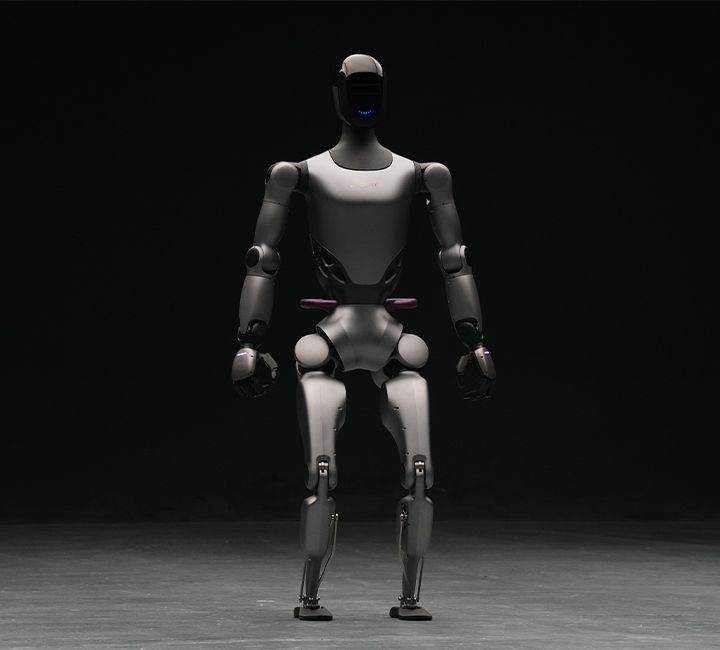
GR-2 (Fourier)
| Feature | Details |
|---|---|
| Robot Name | GR-2 |
| Company | Fourier | China |
| Height | 175 cm (5 ft 9 in) |
| Weight | 63-65 kg (139-143 lbs) |
| Walking Speed | 5 km/h (3.1 mph) |
| Battery Life | 2 hours (detachable/swappable battery) |
| Key Capabilities | 53 degrees of freedom, 12-DoF dexterous hands with tactile sensors, 380 N·m peak torque, VR remote control, lead-through programming |
| Primary Applications | Healthcare assistance, industrial automation, research & development, eldercare, logistics, manufacturing |
| Availability | Prototype/Development phase (launched September 2024) |
| Notable Features | FS with dual-encoder system, integrated cabling design, 3 kg single-arm payload, compatibility with NVIDIA Isaac Lab, ROS, and Mujoco |
Note: Details may not be current or accurate.
About GR-2
The GR-2 is Fourier Intelligence's next-generation humanoid robot, launched in September 2024 as a significant advancement over its predecessor, the GR-1. Standing at 175 cm tall and weighing 63 kg, the GR-2 features 53 degrees of freedom and represents a major leap forward in humanoid robotics with enhanced hardware, software, and design capabilities. The robot is equipped with revolutionary 12-degree-of-freedom dexterous hands that feature six array-type tactile sensors, enabling it to sense force, identify object shapes and materials, and adjust its grip in real-time for optimal manipulation in dynamic environments. Powered by FSA 2.0 actuators delivering peak torques exceeding 380 N·m, the GR-2 can walk at speeds up to 5 km/h with a single-arm payload capacity of 3 kg, while its detachable battery provides up to 2 hours of runtime—double the capacity of previous generations. The robot features an integrated cabling design with a modular structure that shifts from parallel to serial joint configuration, simplifying debugging, reducing manufacturing costs, and enhancing the robot's ability to rapidly transition from AI simulation to real-world applications. Designed for applications in healthcare assistance, industrial automation, eldercare, logistics, and research, the GR-2 supports multiple control modes including VR remote control, lead-through programming, and direct command, while being compatible with mainstream development frameworks such as NVIDIA Isaac Lab, ROS, and Mujoco.